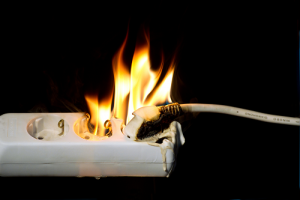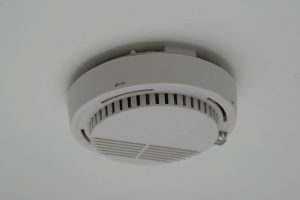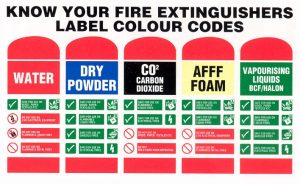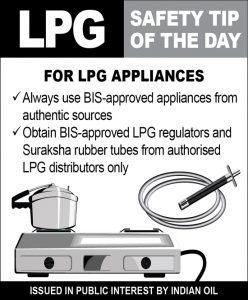The recent fire tragedies in Bhubaneswar have reminded us how dangerous fire can be. According to a report titled ‘Home Owner’s Guide For Fire Safety’ by IIT-Kanpur, a fire can consume the entire room in which it started in just three minutes. Here are a few ways by which we can ensure a safer protection from fire:
1. Fire Extinguishers

If you do not have a fire extinguisher in your premise, do buy one today. It is important to note that not all fire extinguishers are effective against every kind of fire. They are rated differently for different kinds of fire. For kitchens where fire can arise due to cooking gas, an ABC grade fire extinguisher is a must. The IIT report also recommends that the fire extinguishers should be ISI approved. Apart from kitchens, keep one in your bedroom, puja room, library and also near every heavy electrical appliance such as geysers and air conditioners. Cars can also catch fire due to malfunction. It is hence important to keep one in the car. It is also equally necessary to learn how to use them as there is usually no time to figure that out in the case of an emergency. Some extinguishers need refilling or replacement after a few years or usage, check that with the dealer.
2. Smoke Detectors

Smoke detectors start at an affordable 400 rupees and as the name suggests, they detect smoke arising from fire using IR or sensors. They are a must for every room and path of a building. Newer varieties with 5-10 year battery life are a more convenient option than older ones which require batteries to be replaced in 6-12 months. It is very important to check whether they work properly or not by lighting an incense stick under them. And they should be loud enough to wake you up. A centralized fire alarm system with speakers near you is also a good investment. It is often noticed that smoke detectors get activated when placed in our kitchens. Hence it is better to position at a place near the kitchen where the smoke from the cooking wouldn’t come in contact. You can also install gas leak detectors in your kitchen.
3. Exits
A building must have two exit paths or staircases on either side for quick escape in case of fire. According to the National Building Code 2016, high rises need to have specific measures such as pressure controlled doors, separate lifts for firemen with independent power supply, dedicated water storage and fire escape routes. Make sure your building adheres to all the rules. There should be sufficiently big windows for the smoke to vent out as it is the smoke that spreads easily and chokes out. It is also imperative that mock fire drills are carried out in every home and office.
4. Carpets, Curtains & Wood

Fire can easily spread through carpets and curtains. Most carpets and curtains available in India are not coated with fire resistant materials. It is important to coat them or avoid them all together. Synthetic materials are very low in resistance. Wood is more resistant to fire than clothing material but not as safe as bricks, marble, ceramic and concrete. It is best to avoid wooden flooring and other structures. The mattress in your bed should have a good fire safety rating too.
5. Electrical

Short circuits and electrical malfunctions are the most common reason for fires in buildings today. It is extremely important to use good quality cables and equipment. Do not leave an appliance running unattended or on standby. Prefer proper plug points to random extension boards. Curtains, paper or cloth type materials near switchboards are a strict no. Appliances such as refrigerators, air conditioners, ovens and even phones need some space for the hot air to vent out. Hence it is very important to avoid using the laptop directly on bed. The heat can cause the lithium batteries to catch fire. Electromagnetic locks and sensor operated doors should have a fail-safe option and everyone in the household should be aware of it. Proper earthing and installation of circuit breakers such as MCBs and RCCBs are an absolute necessary. It is also important to know where the main electricity distribution box is inside your premise so that you can turn it off immediately in case of an emergency. Inverter batteries are a fire hazard and must be kept in an open well ventilated area.
6. Kitchen
Apart from fire alarms and smoke detectors, the kitchen needs careful planning. According to Indane, it is very important to ensure that all gas pipes and fittings are BIS approved. If you smell a gas leak, turn off the regulator valves and open all doors and windows. Do not operate any electrical switch. Even if a switch is on, let it be on as turning it off or switching it on can produce a spark that can ignite the gas. Call for help after coming out of the kitchen.

In the case of a fire, the IITK report also states that it is extremely important to first get out of the building safely and call for help. If you can, cut off the electrical supply. Keep keys near the doors so that every occupant can open them immediately. Never leave kids alone, and teach them what to do in case of a fire. If going downstairs is not an option, then rush to an open area such as terrace and call for help. If there is a fire just outside your room and you have no way of getting out, seal the gap under the doors using towels and call for immediate help.


